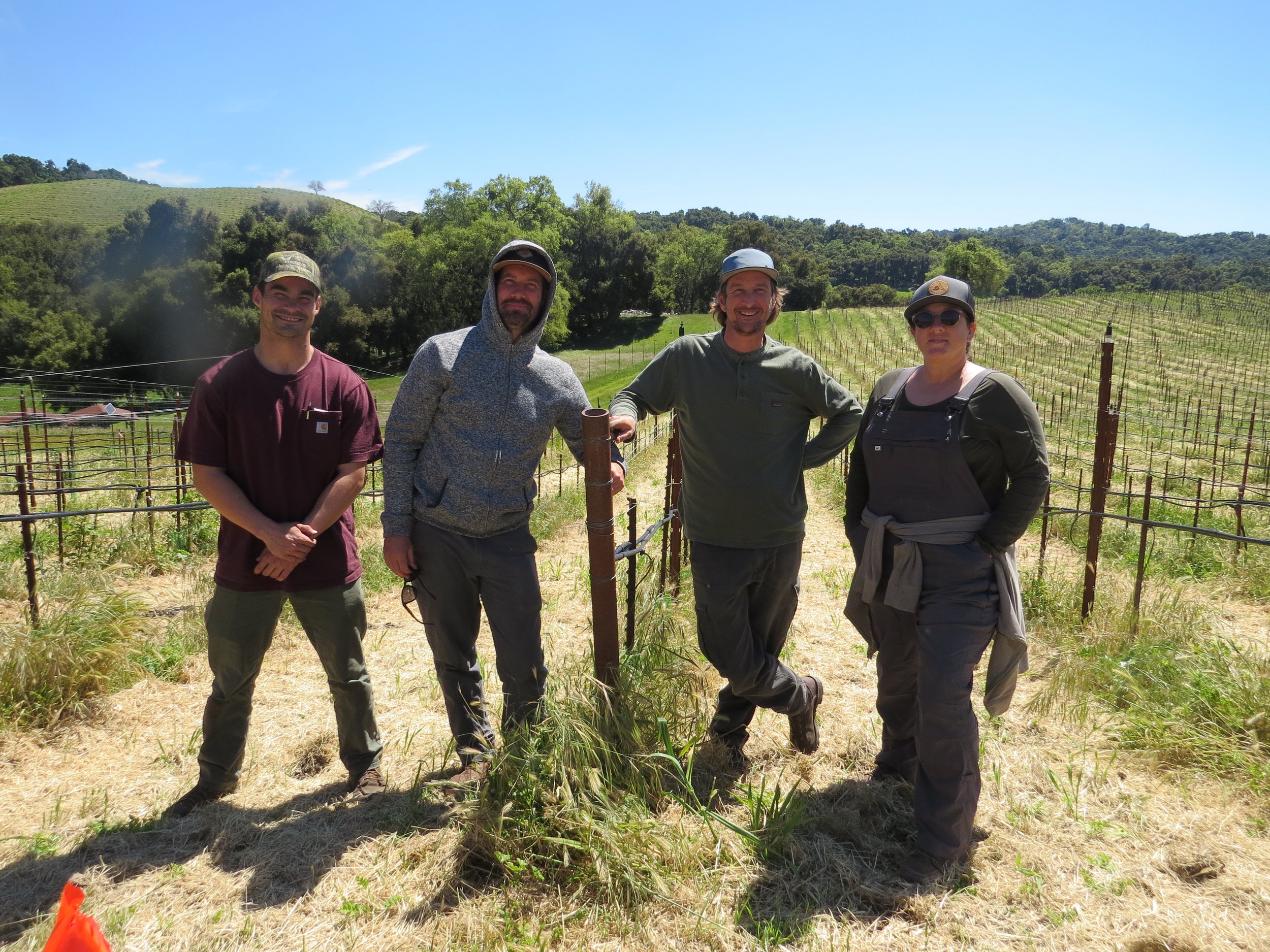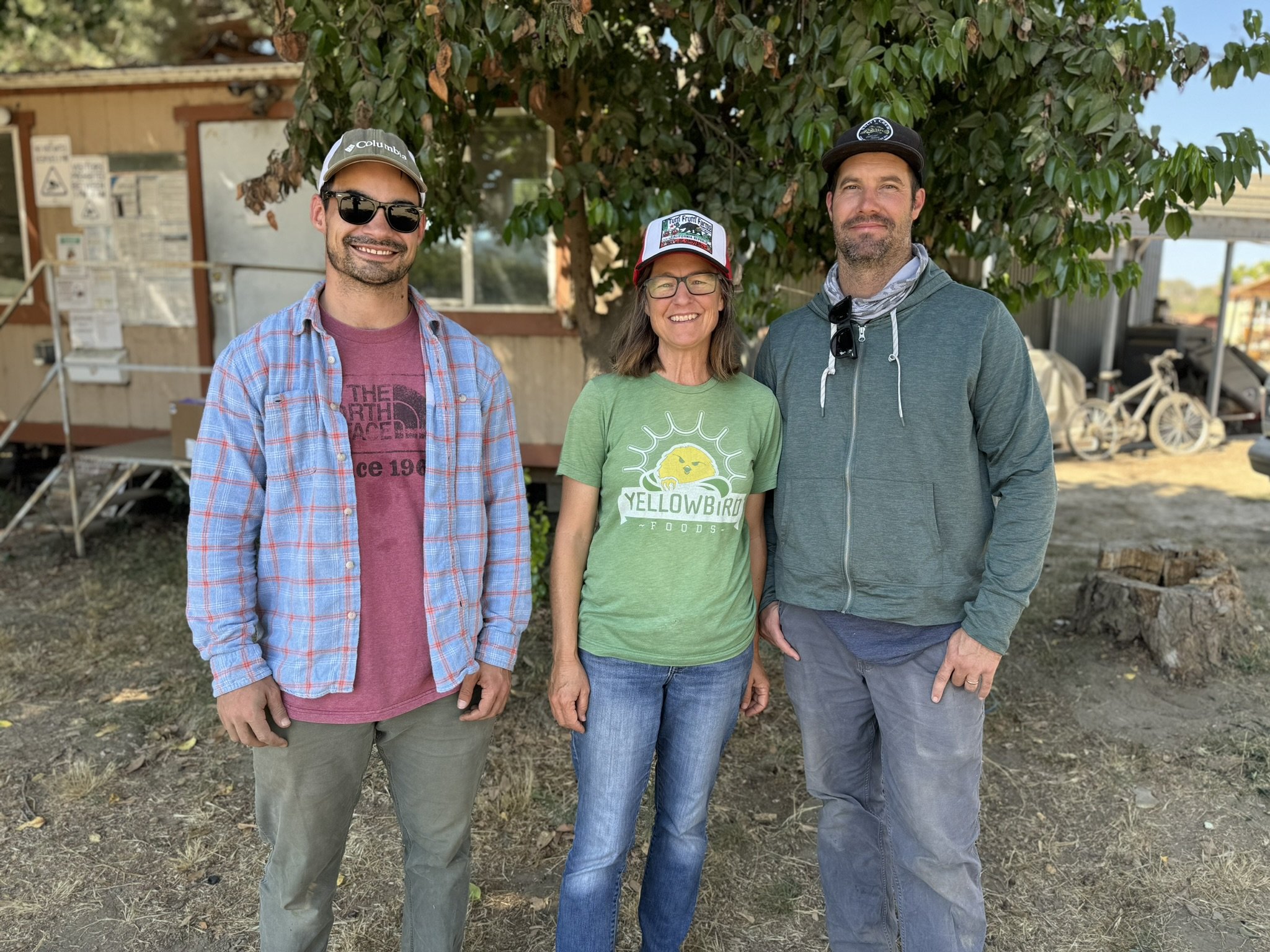USDA “A Vibrant Future” Climate-Smart Commodities Grant: A Year in Review
In 2023, Measure to Improve (MTI) began supporting the USDA Partnership for Climate Smart Commodities Grant Program “A Vibrant Future”. In collaboration with the International Fresh Produce Association (IFPA), the University of Florida (UF), Alcorn State University, and CropTrak, we supported the program implementation and laid the groundwork for this initiative. By the end of 2024, we transitioned from planning to action, driving forward the implementation of climate-smart practices, developing tools to measure and track impacts, and establishing systems for marketing climate-smart produce.
Led by Kyle Cosgrove (Director of Agronomic Services) with support from Nikki Cossio (Founder and CEO), Gabe Worthington (Sustainability Program Manager), Elias Boyd (Regenerative Agriculture Apprentice), and Kubir Sandhu (Sustainability Program Technician), our team made meaningful progress toward these goals. MTI’s role focused on the West Coast, where we supported specialty crop growers with eligibility processes, practice selection, practice implementation, and data collection, including baseline soil samples.
Climate-Smart Practices
The USDA grant provides financial incentives to implement conservation practices as identified by NRCS Conservation Practice Standards. Participating growers embraced one or more of the following:
Cover Cropping
Soil Carbon Amendments
Irrigation Water Management
Nutrient Management
Residue and Tillage Management – Reduced Till
Residue and Tillage Management – No-Till
In many cases, growers implemented a combination of these practices.
2024 Successes
2024 was a productive year for MTI and the program. Achievements include:
Enrollment: MTI enrolled 82 West Coast growers out of the total 100 grant participants.
Soil Sampling: We conducted 15 trips to collect over 300 baseline soil samples from 79 of the 82 enrolled growers.
Field Day: Partnering with IFPA, California Walnut Commission and Blue Diamond Almonds, we hosted the first West Coast Field Day on December 4, 2024, at Chamisal Ranch in Arbuckle, CA.
Looking ahead to 2025, our goals include enrolling the final two West Coast growers, continuing soil sampling efforts, developing educational materials, testing infield technologies, and planning additional Field Days to facilitate communities of collaboration and learning.
Challenges and Lessons Learned
While progress this year was substantial, several challenges highlighted the complexity of this work:
Recruiting Participants: Developing relationships with 82 growers was a challenge, especially when asking growers to commit to a 4-year trial. Our team’s expertise, straightforward approach, customer service, and follow-through helped growers navigate a complex proposal into a functioning grower friendly program.
USDA Eligibility Forms: Navigating the required paperwork was daunting for growers. MTI’s expertise helped guide growers through this process.
Soil Sampling Logistics: Identifying specific plots within large fields and blocks posed challenges. Thanks to a digital solution suggested by a grower, we overcame this issue.
Diversity of Practices and Participants
The program has showcased diversity in both practices and participants. Growers implemented a range of innovative strategies, including:
No-Till Farming
Grazing Integrations
Biological Inoculations and Bio-Stimulants
Cover Crops and Mulch Applications
Water Management Techniques
These practices spanned a diverse set of crops—from almonds and leafy greens to citrus, avocados, and flowers—and regions, including the Salinas Valley, San Joaquin Valley, and Sacramento Valley, as well as Eastern Washington. Farm sizes varied from expansive orchard systems to small, specialized vegetable operations.
Engagement and Collaboration
Building a strong network of growers, researchers, and vendors was central to our success. Throughout the year, MTI participated in numerous industry events, including:
The West Coast Field Day also brought together stakeholders such as California Secretary of Agriculture Karen Ross, USDA representatives, IFPA, growers, researchers, and vendors.
Lastly, we also spoke in IFPA’s AgTech podcast and at Cal Can Summit in Davis, CA. These events allowed us to exchange ideas, highlight challenges, and showcase innovative solutions.
Looking Ahead
The successes of 2024 set the stage for an even more impactful 2025. With grower enrollment nearing completion and momentum building around climate-smart practices, MTI is excited to continue supporting this vital work.
Together with our partners and network of growers, we’re creating a vibrant, sustainable future for agriculture from the field up.







